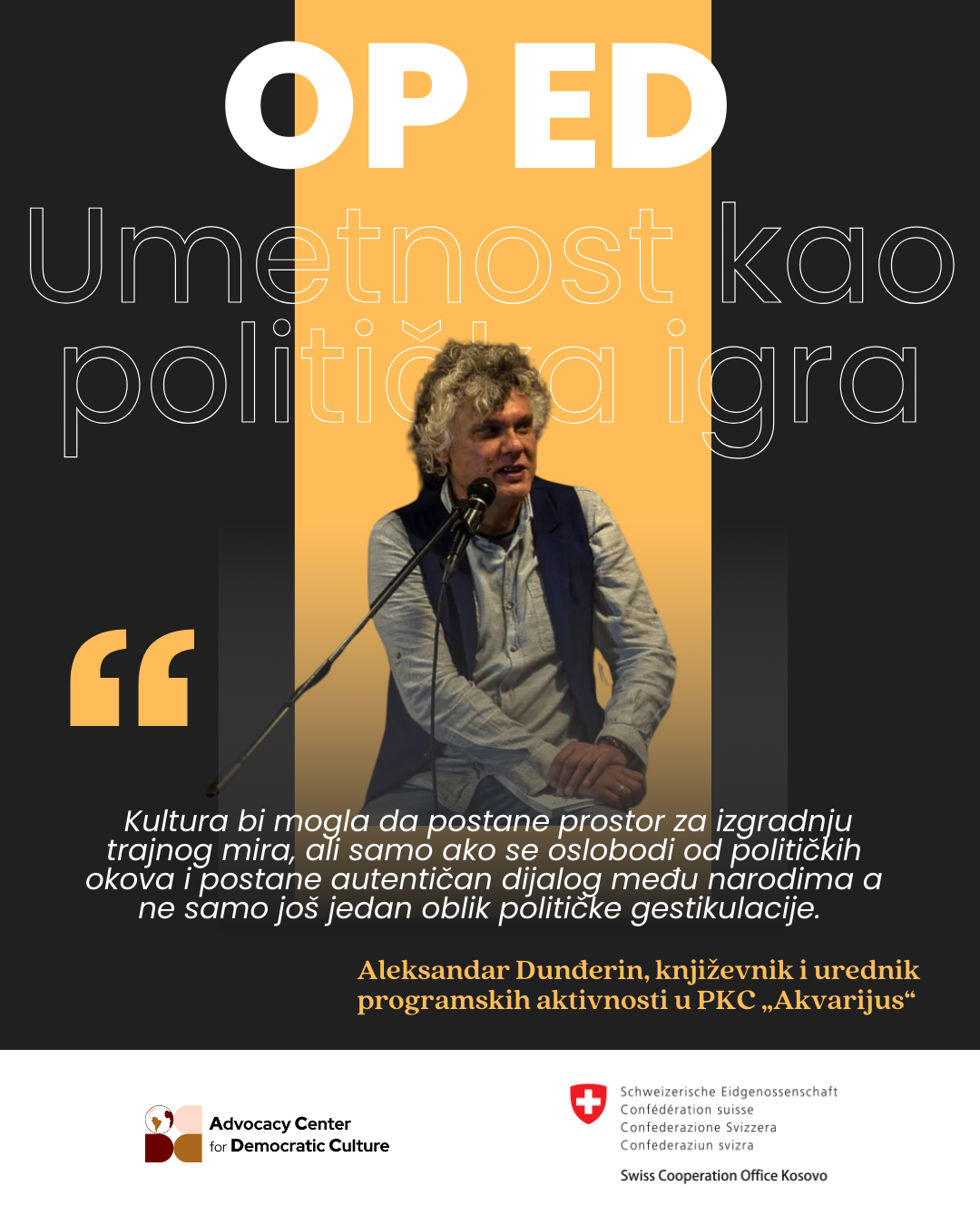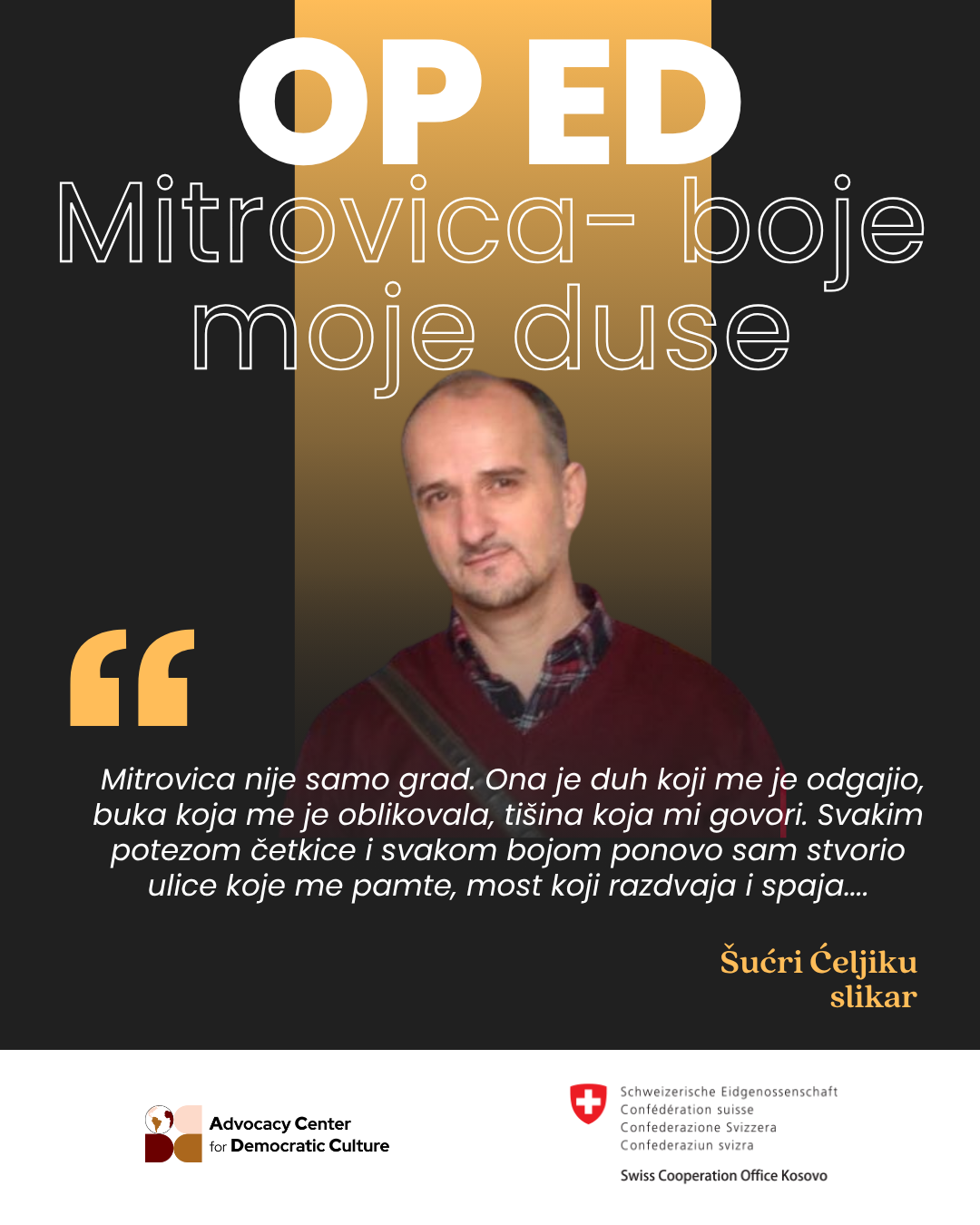
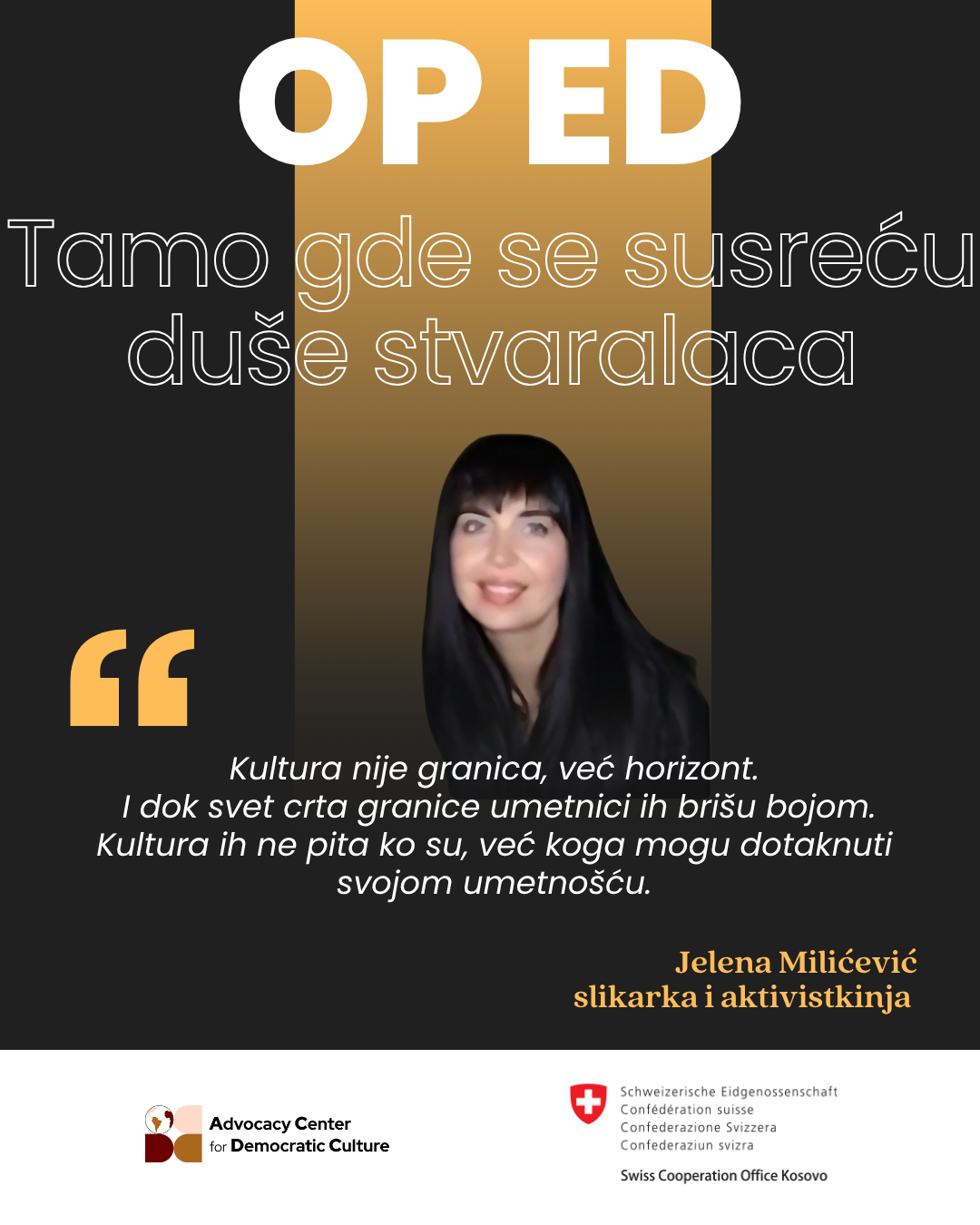
22.07.2025. » 08:35
Tamo gde se susreću duše stvaralaca
Na mestu gde se dodiruju horizonti, umetnici...
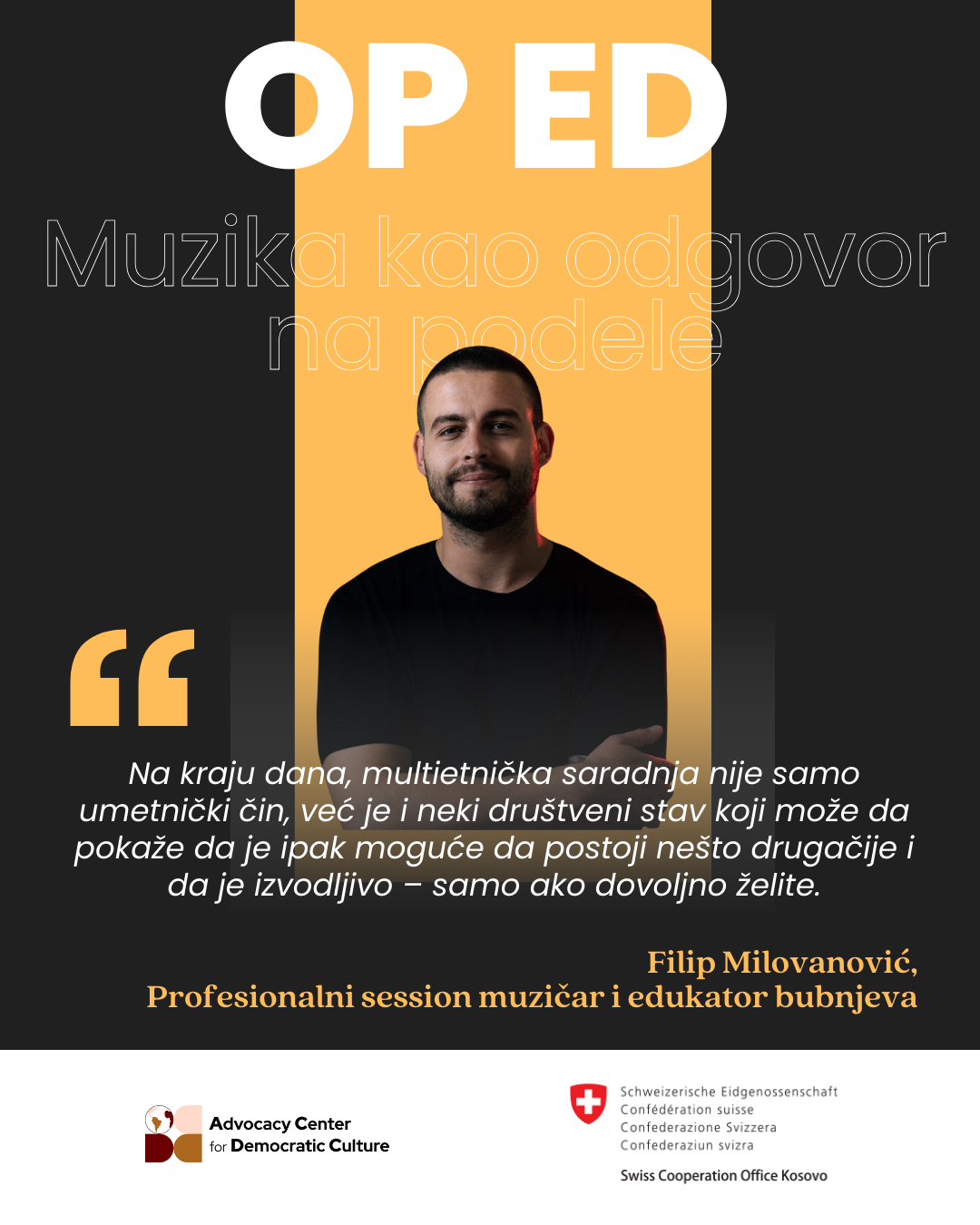
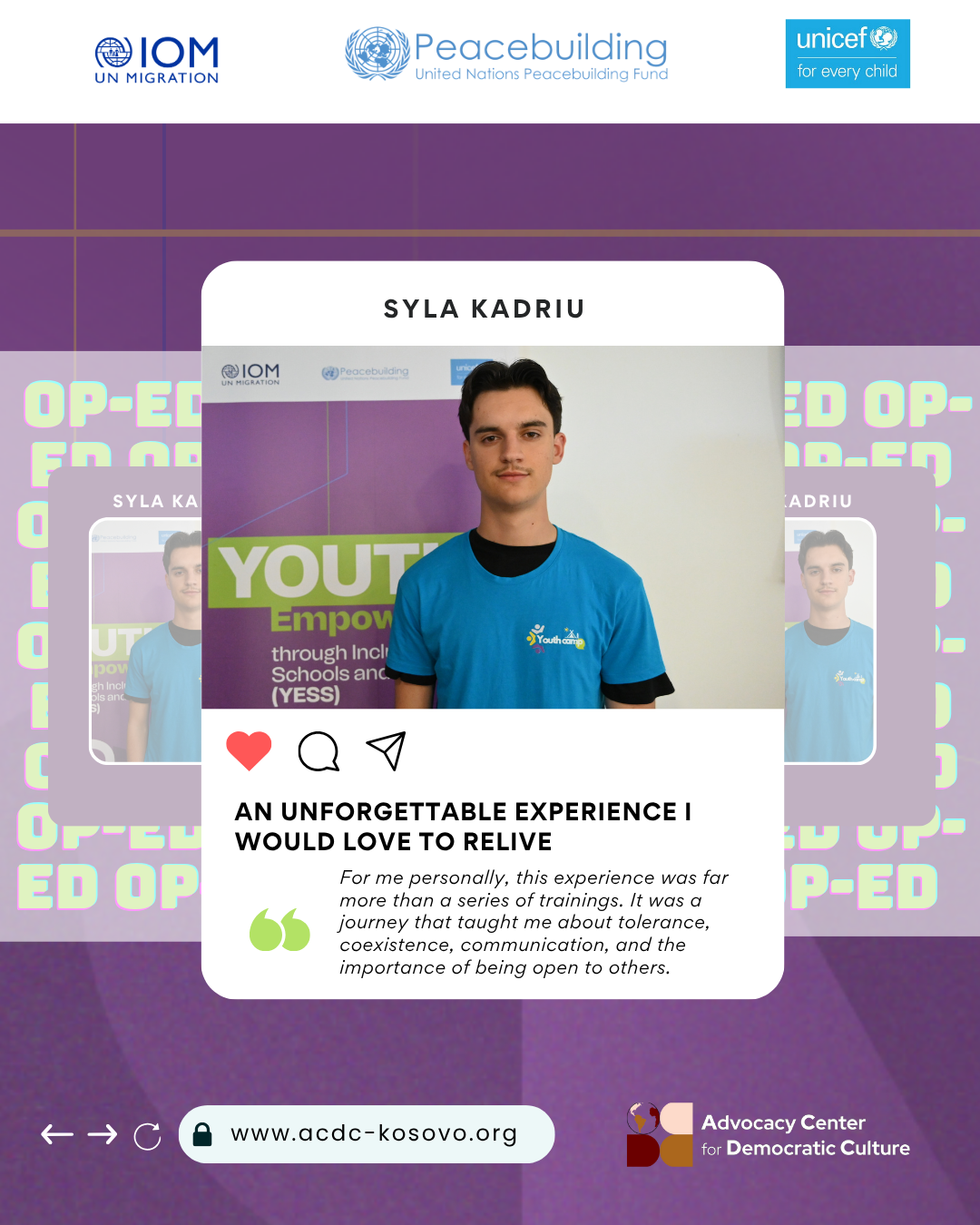
13.05.2025. » 20:28
Iskustvo na omladinskim kampovima - Nezaboravno iskustvo koje bih rado ponovio
U periodu od februara do maja 2025....

26.04.2025. » 08:24
Otkrivanje zajedništva kroz iskustva sa omladinskog kmapa
Svako novo poznanstvo je priča za sebe....

22.04.2025. » 09:19
Kad zvuk postane most: SWW i umetnost koja spaja svetove
Na mestima gde drugi vide samo granice,...

